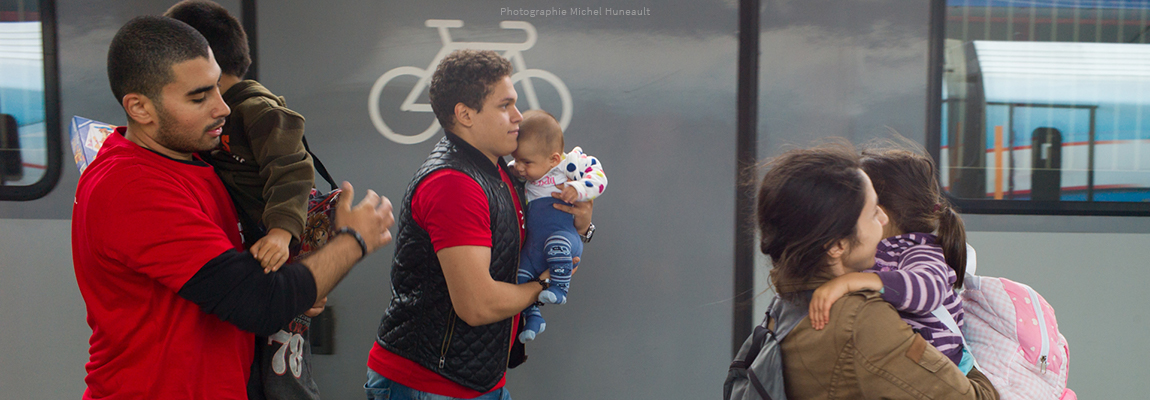Three lines define the main research directions of the Canada Chair in Global Migration Processes in its phase 2:
- the management of immigration through technology;
- the management of the labor market through immigration;
- the management of the territory through immigration.
The mission of the Chair is to respond to the urgent need for scientific knowledge on global issues of great social relevance and topicality. Such is the case with the growing use of new technologies (AI and automated decision-making software) in the field of immigration, which it will study critically, always with the aim of working towards greater justice for migrants and better informing immigration stakeholders and governments. Various national and international projects of the Chair will study the impacts of environmental crisis on migrants and migrations. The Chair’s work will also focus on migratory routes, precariousness, migratory territories and migration governance, enabling us to address and better understand the dynamics between mobility and immobility, migratory successes and failures, the reconfiguration of migratory spaces, and the issues and repercussions of migration policies.
The Chair generates useful and enlightening knowledge for the development of public policies aimed at promoting the positive impacts of migration. In line with an inclusive research ethic, it integrates migrants, different cultural communities and community organizations into its research processes. It thus produces knowledge that contributes to strengthening their capacity for action, to defend migrants’ rights and to reduce situations of precariousness. In line with the objectives of Laval University, it seeks to create a dialogue between stakeholders (governments, communities, migrant organizations, residents and citizens).
Among other things, the Chair will develop innovative projects on the study of policies aimed at revitalizing Canadian regions through immigration, and on the impact of environmental crises on temporary workers in Northern Quebec and Canada. It will also continue its pioneering and important work on temporary immigration.
Always committed to the dissemination of scientific activities in the field of migration to a wide and varied audience, the Chair also carries out numerous outreach and public activities (holding inclusive conferences, writing reports, developing educational tools, creating maps, producing and screening documentary films, giving media interviews or writing press articles, etc.).
Students are at the heart of the Chair’s activities, contributing to its dynamism, and benefiting not only from its varied and growing networks, but also from its transdisciplinary training of excellence. Find out more about their work by listening to this presentation.

